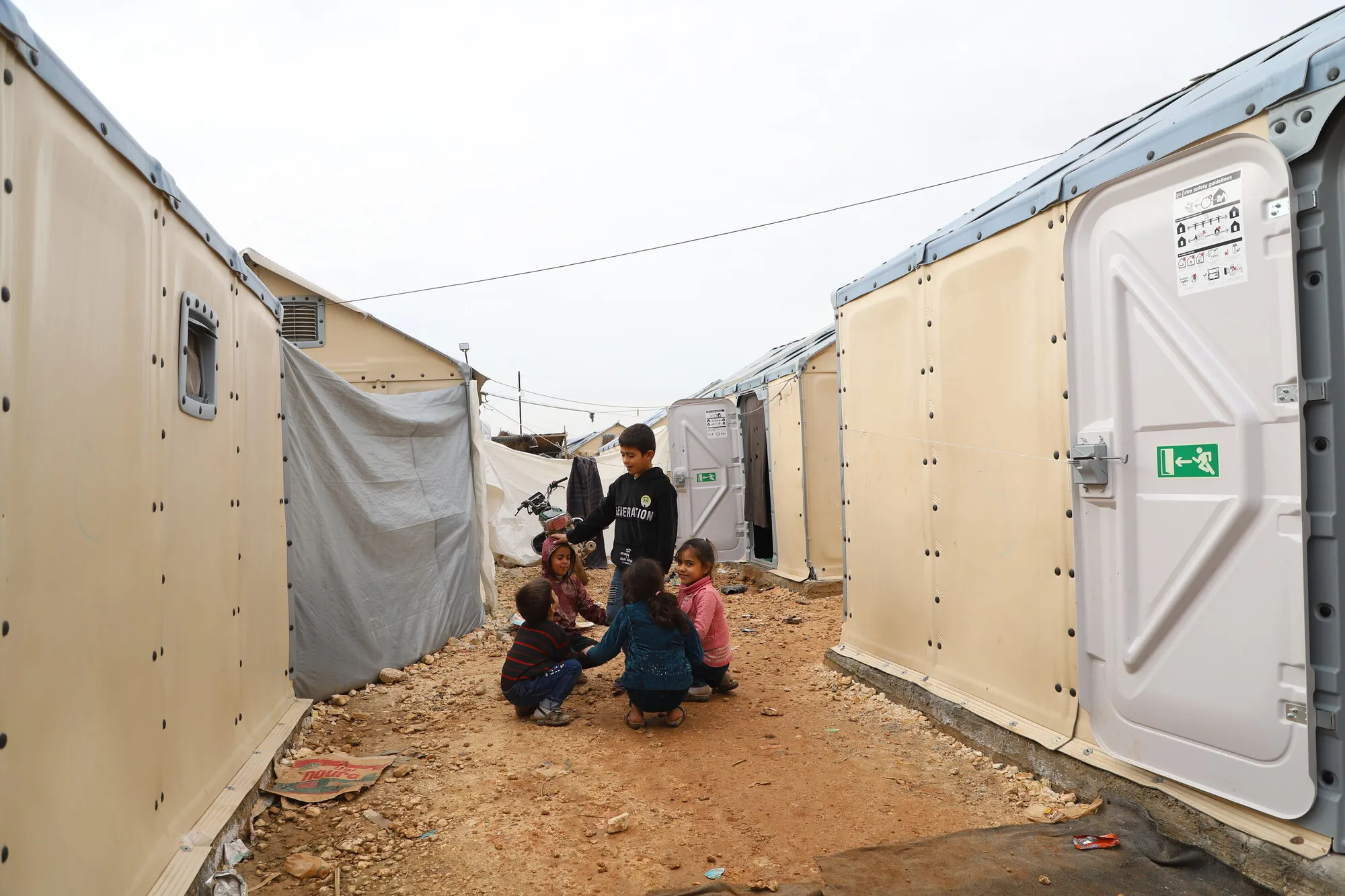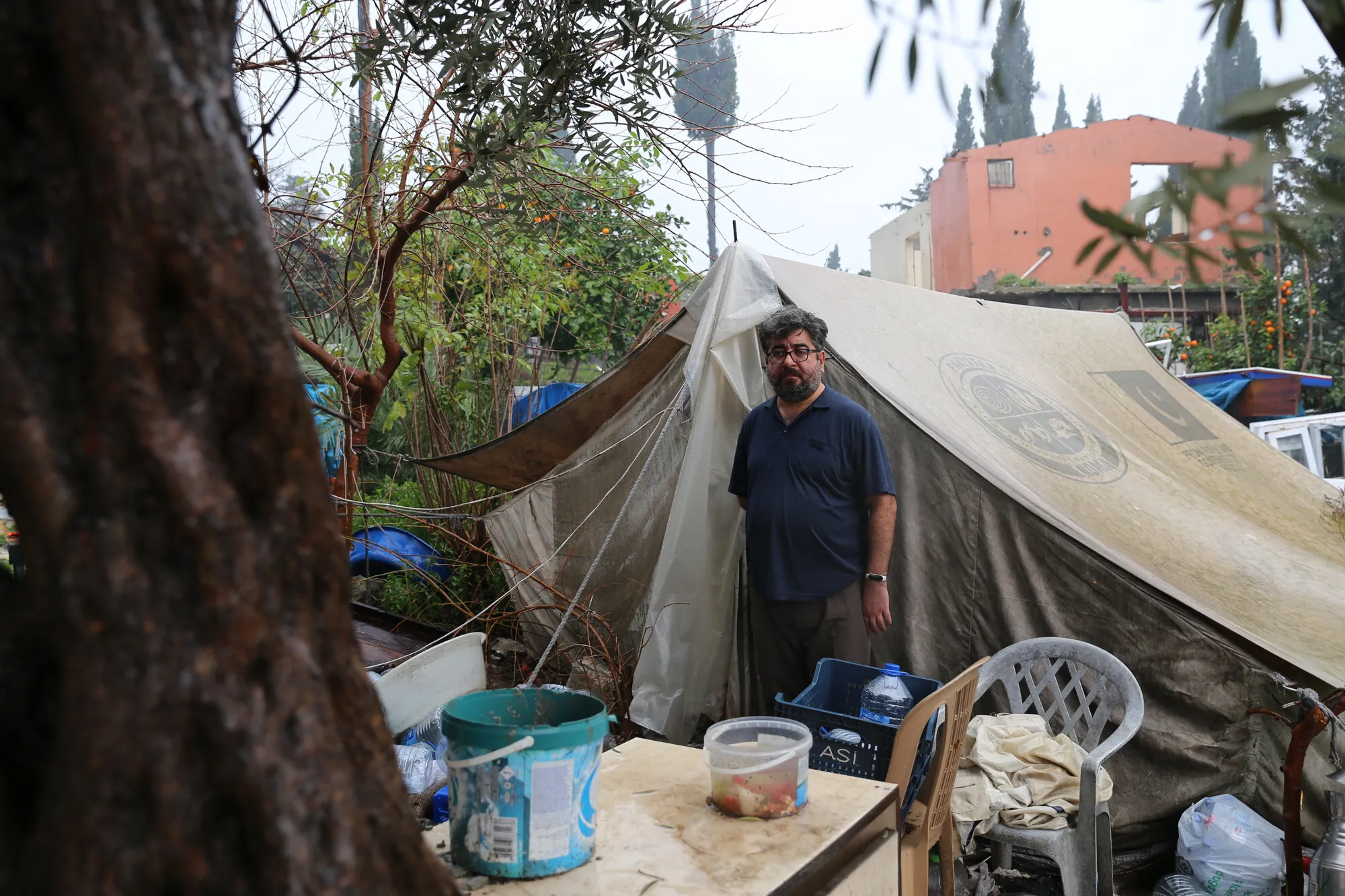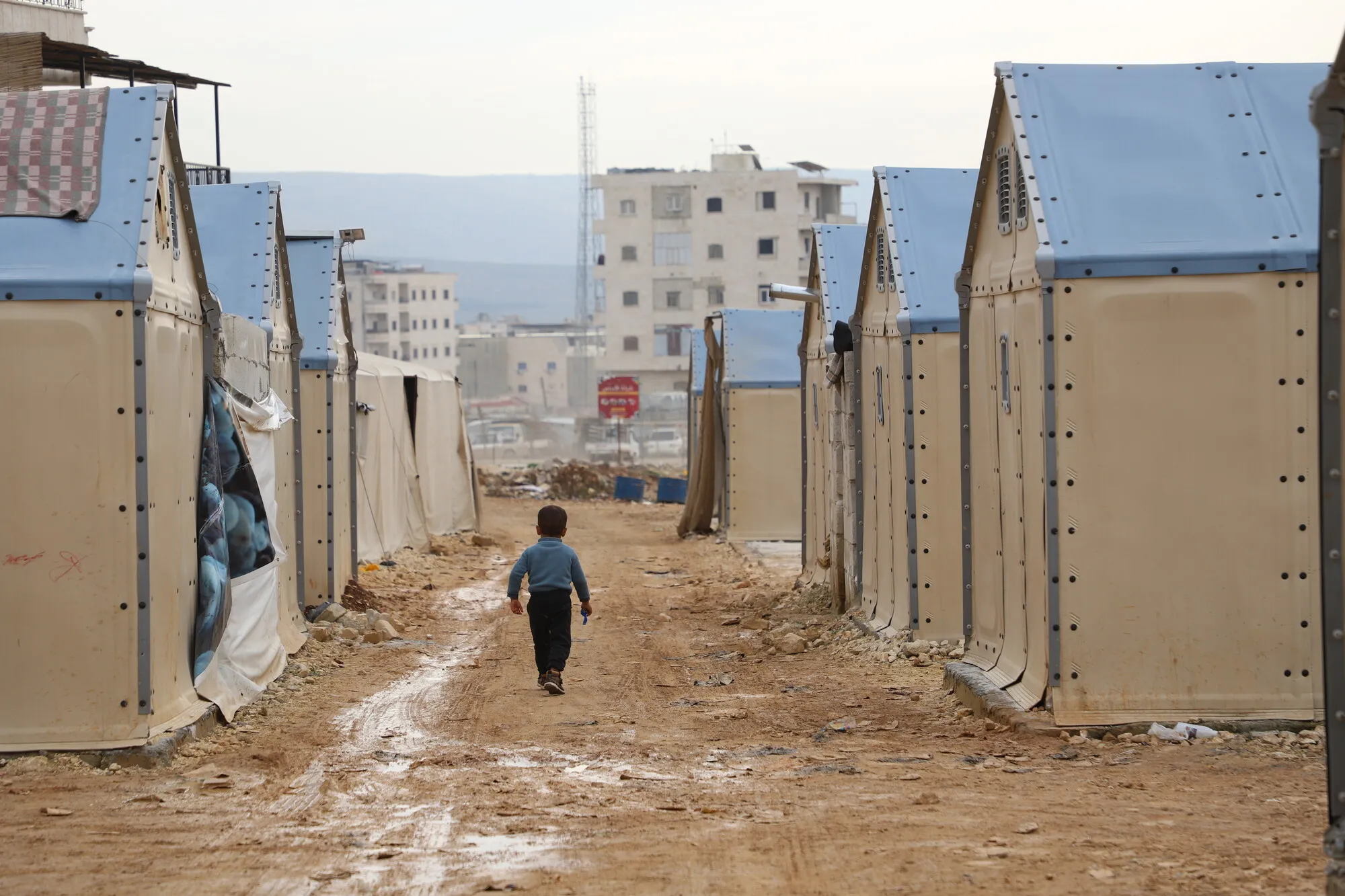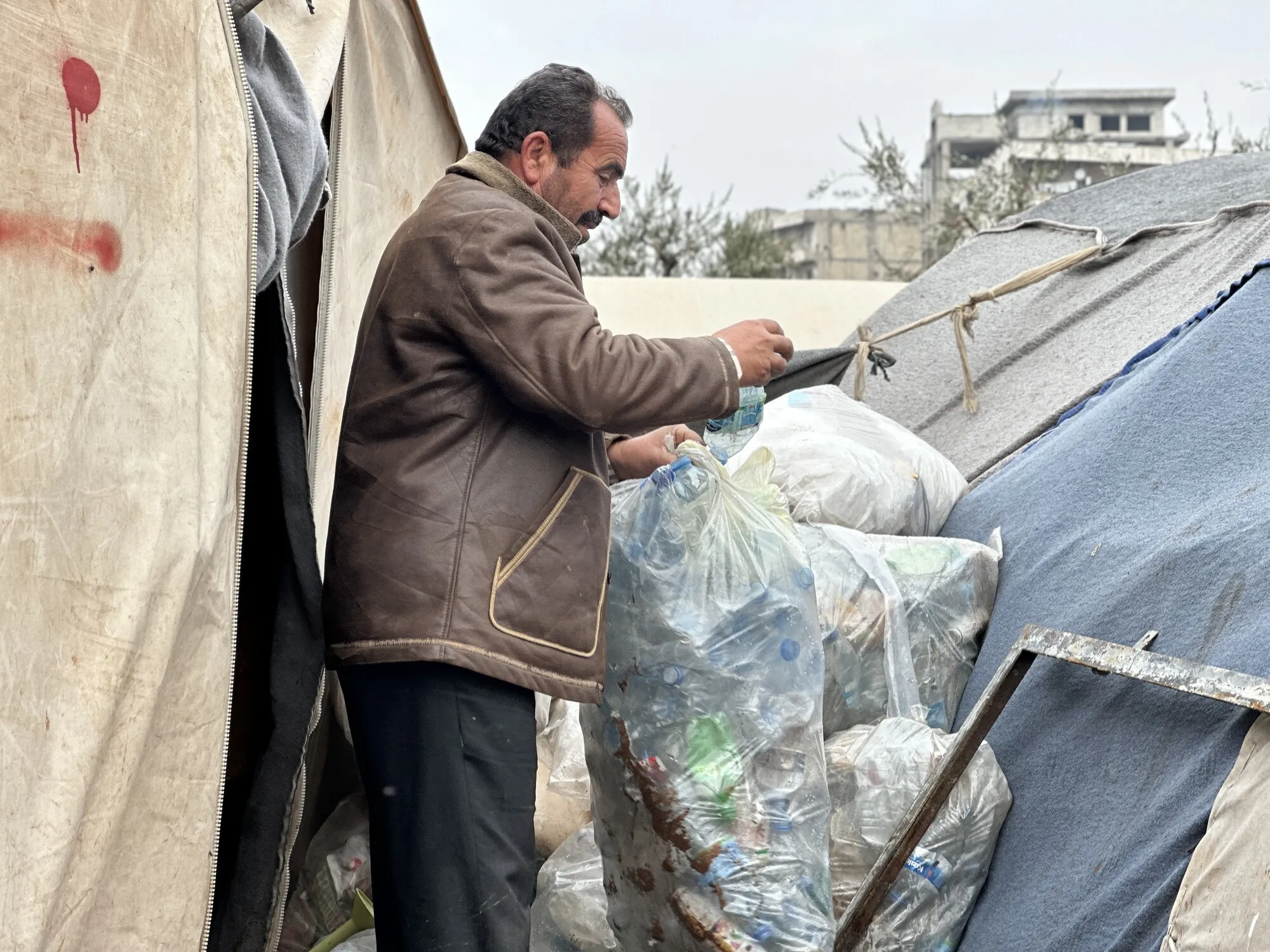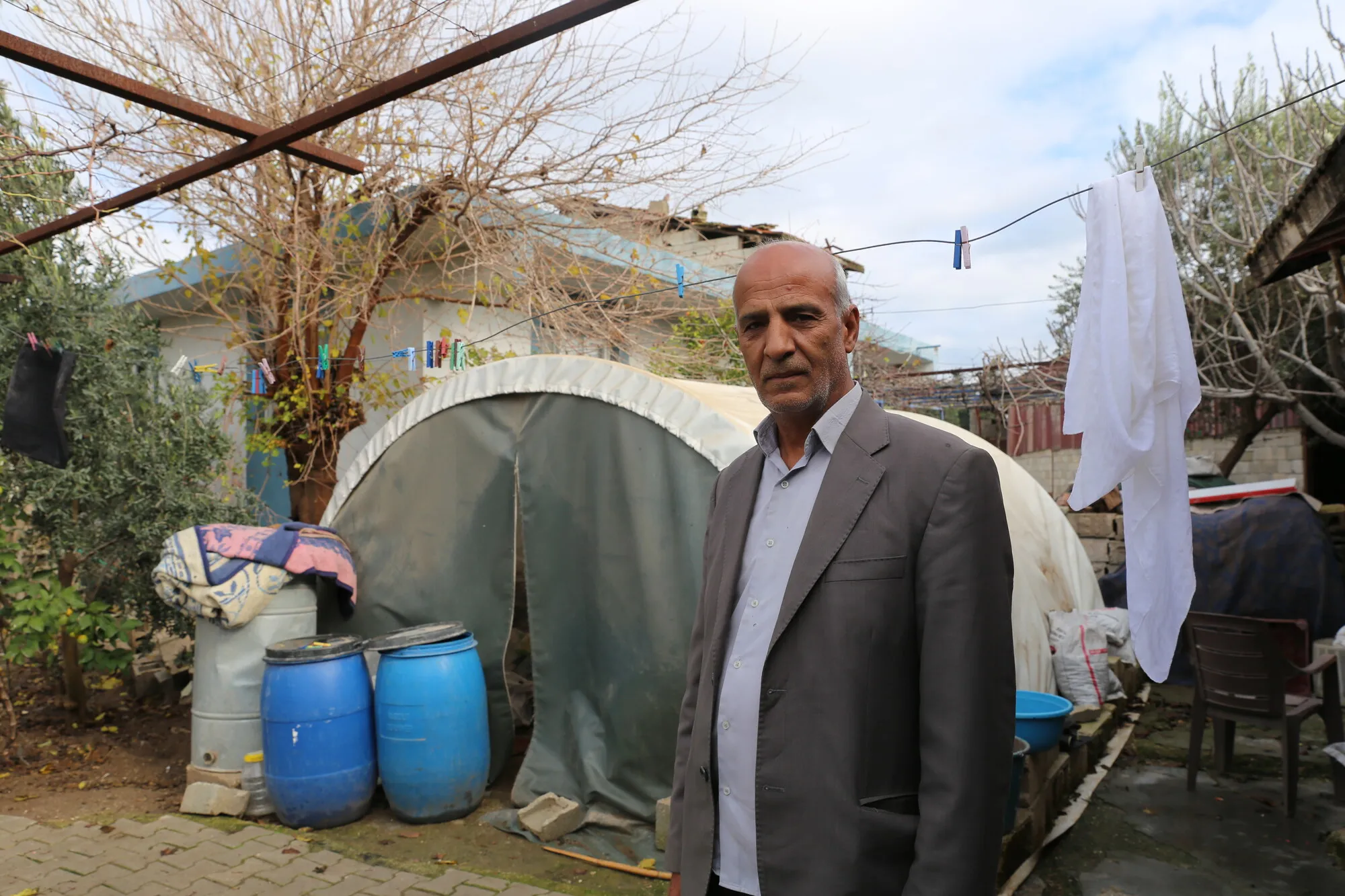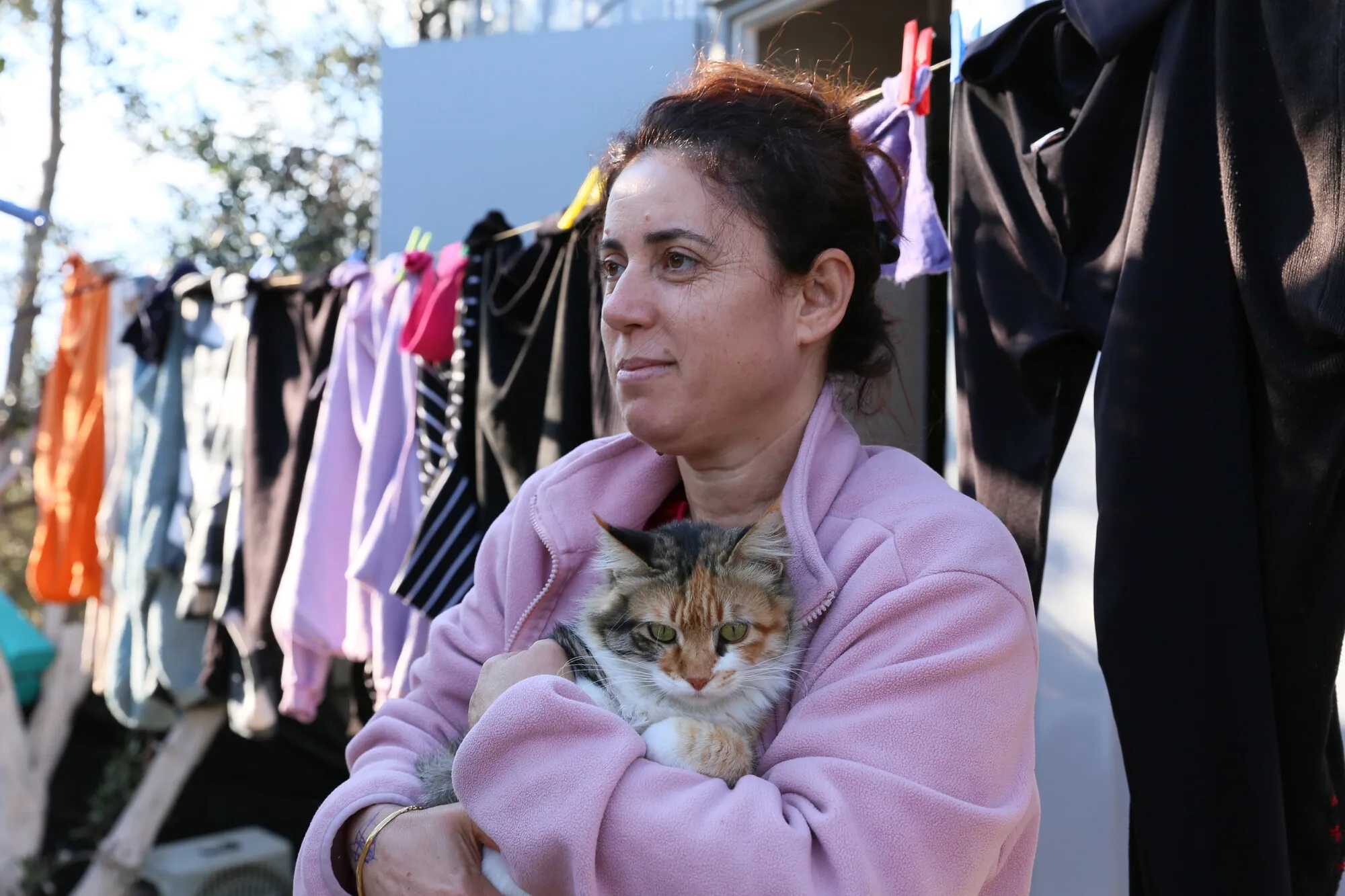Every morning in Afrin, a city in northern Syria, Abu Mahmoud gathers plastic water bottles from a large garbage container next to his tent. He then burns them in a stove inside his makeshift tent.
The 56-year-old father of twelve is aware of the great health risks associated with breathing emissions of burned plastic, but avoiding this practice is not an option.
This is the only reliable way for him to keep his family warm in the extreme cold.
According to a recent updated by OCHA, most people in Syria cannot afford the skyrocketing costs of winter clothes, which have increased by 100 percent compared to last year. In addition, diesel stove prices went up around 175 percent compared to last year. Power supply, diesel and firewood continue to be unavailable or very expensive in the private market, and, as a result, many vulnerable people like Abu Mahmoud are reportedly burning plastic and garbage for heating.
This is not Abu Mahmoud’s first experience with displacement. Four years ago, the war forced him to leave his home and farming fields in the western Aleppo countryside.
“I had a house and worked on my land to secure bread and a living for my family,” he says. “I even helped the people in need as our area had received displaced people from other provinces. We hosted them and shared bread with them.”
After the earthquake, he and his family were displaced again after their home collapsed.
“I thought it was the last night of the earth. I could hear screams from everywhere around me,” he recalls. “Everyone was rushing to the streets. The wall inside my children’s room collapsed, and they were trapped under it. We had to dig with our hands and feet to get members of my family out.”
After Feb. 6, Abu Mahmoud and his family found themselves in the street with nothing but the clothes they wore, having nowhere to go. They set up a makeshift tent and this is where they live one year after the earthquakes.
“If we stay in the tent for another year, the rain and cold in the winter and the heat in summer will eventually kill us.”
Abu Mahmoud is just one of approximately 4.1 million people in northwest Syria who are in urgent need of lifesaving assistance. 1.9 million people live in over 1,500 camps or self-settled sites with limited predictable access to heating, clean water or other necessities, around 80 percent of whom are women and children and particularly vulnerable to many risks, including gender-based violence.
“With this earthquake, we went from bad to worse,” Abu Mahmoud says. “We suffer from the mud, the cold, and the rain. This is the reality here. We light a fire in a makeshift stove inside the tent, which could cause cancer. We use plastic bottles for heating because we cannot afford fuel. And as if this was not enough, we hear that humanitarian aid will stop.”
As of December 2023, the 2023 Humanitarian Response Plan for Syria, which asks for $5.41 billion, is only a third funded. This year saw the reduction of funding for World Food Program and its partners in northwest Syria by 50 percent, resulting in a scale-down of the operation.
At the same time, the price of food baskets in Syria has doubled in 2023 and food insecurity is at an all-time high with four in five Syrians in the northwest being deemed food insecure.
In addition to food insecurity, underfunding is expected to have implications across all sectors. For example, shelter and winterization cash assistance may be spent on food rather than fuel or shelter support. As a result, already vulnerable populations may turn to negative coping strategies, including buying food on debt, or selling assets, child labor, and skipping meals or reducing consumption.
“If the services of non-governmental organizations stop, it will be a humanitarian disaster. People will be desperate, and they will be forced to steal just to feed their children. Where will we go? What will we do? We are facing a disaster bigger than the earthquake, and this time it will be caused by humans.”
In 2023, Abu Mahmoud received winter cash assistance from Syria Relief, one of CARE’s partners. “When I received this cash assistance, I felt like a human, and I couldn’t believe I had money in my pocket. I bought necessities for the tent and paid off part of my debts to the local store.
“My wish is to live like a normal person. I don’t want to be rich, and I don’t want to be very poor. We are now living in conditions below zero,” says Abu Mahmoud.

